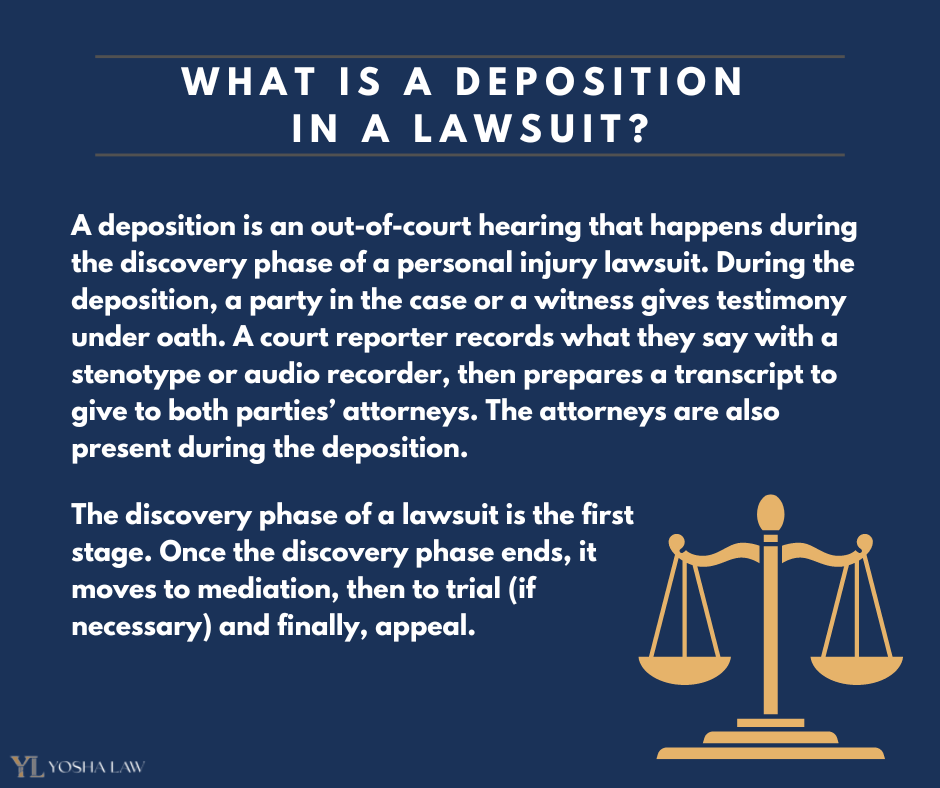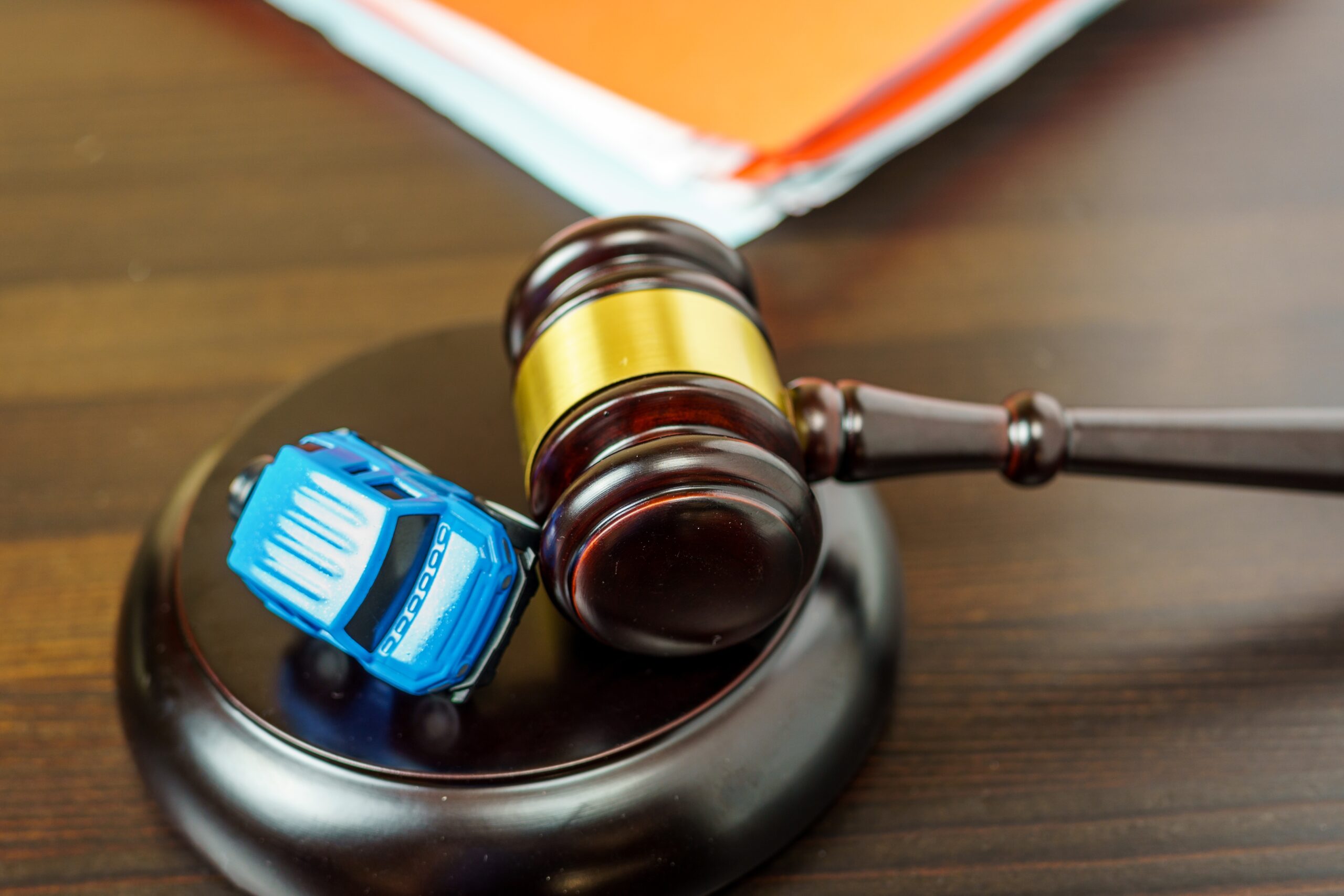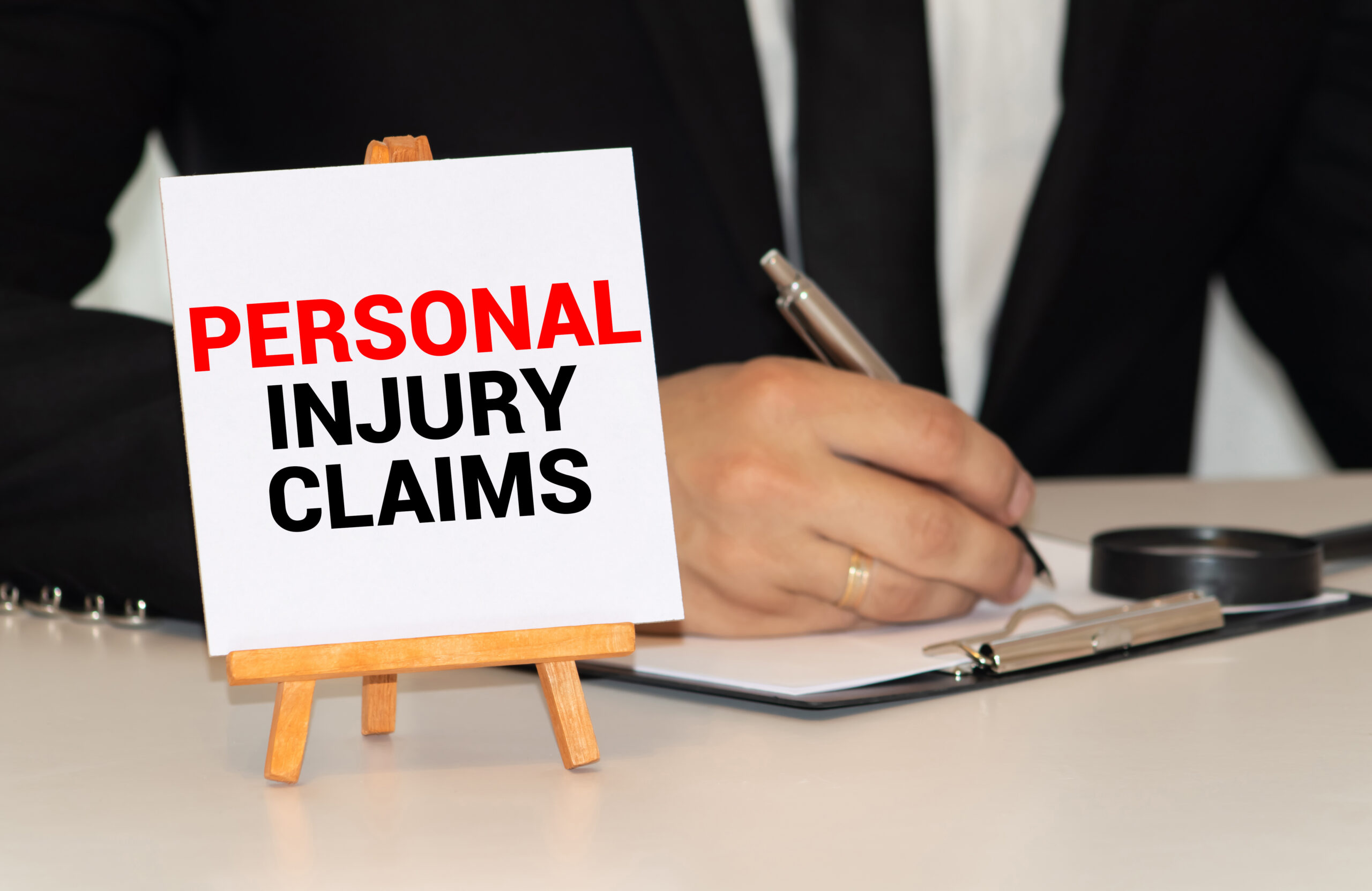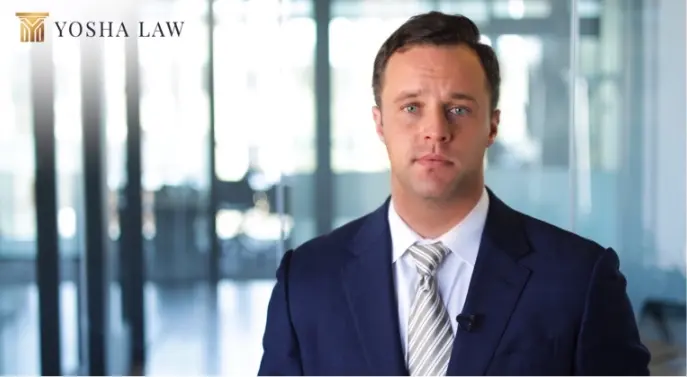
After you give a deposition for your car accident, your lawyer will work with your insurance company to negotiate a settlement for you. This process is especially crucial for your car accident in Lafayette, where your lawyer will work with your insurance company to ensure the best possible outcome. You may still face a long road to recovery, and the goal is to get a settlement that helps cover the cost of your injuries without the case going to trial.
Giving your deposition is an important step in your car accident case. This guide covers what a deposition is, what to expect, how to know if it went well, and what happens after you give your deposition in a car accident case.

Do you need a lawyer present during a deposition?
It is highly recommended that you have your attorney with you when you give a deposition. When you get deposed, the other party’s attorney asks you questions — about your background, the accident, and your injuries.
You do not have to answer every question that is asked. If your attorney is by your side, they can advise you which questions to answer and which to avoid. After all, there is a reason why most personal injury cases end with a settlement in Indianapolis
What is the next step after the deposition?
As soon as your deposition is over, the case proceeds in the following steps:
- The court reporter will prepare a transcript. It could take a few days or a few weeks for your attorney to receive it. Both parties are allowed to review the transcript.
- Your lawyer reviews your deposition. They’ll let you know how your deposition could affect your case.
- You may have to have medical examinations. The opposing side may ask you to get an independent medical examination. Your insurance company may choose a doctor for you, but they could be biased. Your attorney can prepare you on how to handle the exam and ask you to see your own doctor to get a separate report on your injuries.
- The case moves to mediation. If no more depositions are needed, the case moves from discovery to mediation. During this phase, your attorney negotiates with the opposing side to try and reach a settlement. Most personal injury cases end with a settlement.
- The case goes to trial. If your insurance company does not offer you a reasonable settlement, your lawyer may want to take the case to trial. At the trial, you and the other party will both give testimony before a judge or jury. Your attorneys can also present evidence and question witnesses.
- You appeal the trial decision. If your trial does not end favorably, you and your attorney can explore the option of appealing the trial decision.
You Get ONE Shot At Full Justice. We Make Sure You Take It.
*Available 24/7 & Obligation-Free
How long after deposition will they settle?
You shouldn’t expect your personal injury case to settle immediately after giving your deposition. For simple cases, settlement can happen six weeks after the deposition. For more complex ones, it can take several months.
Several factors affect how long the case lasts after the deposition so there’s no exact answer. It depends on the details of your case. The only person who can give you a realistic time estimate is your personal injury attorney.

How do you know if your deposition went well?
Your attorney can let you know how you did at the deposition after it’s over. They’ll be with you during the deposition and should have provided coaching beforehand. After it’s over, your lawyer can give you honest feedback. Your attorney may not be able to evaluate how the deposition affects your case moving forward until they have the transcript.
You can also give yourself a quick test to know if you did well at your deposition. Ask yourself these questions and if you answer yes to all of them, you probably did well:
- Were you knowledgeable about the facts of the accident?
- Did you present your medical history accurately?
- Were you prepared to answer questions about your work history?
- Did you tell the truth?
Your attorney will know what kinds of questions you’ll get during the deposition. They can make sure you have all the information you need beforehand to answer the other party’s questions accurately.
Sample Deposition Questions for a Plaintiff in a Car Accident in Indiana
Some examples of deposition questions you might get as a plaintiff in a car accident case in Indianapolis are:
- Your personal background: name, address, phone number, date of birth, address
- Your educational background: schools, degrees, and training
- Your family background: marital status, number of children, and living situation
- Your health and medical background: pre-existing injuries, chronic health problems, and any doctors you’ve visited in the last 12 months
- Your work background: previous jobs, current job, and whether you’ve missed time from work before
- Your criminal background
- Your injury or civil claims background: whether you’ve filed lawsuits before
- Details about how the accident happened: where, when, where you were heading, traffic conditions, and road conditions
- Details about traffic lights, signs, lane markings, etc.
- Exactly what each driver did: how fast you were going, how far the other car was away from you, where you collided, and which side of the vehicle collided
- The injuries you claim were caused by the accident
- When you first got medical treatment after the accident and what you told the doctor about your symptoms
- Whether your injuries have affected your day-to-day functioning
These questions are only a sample of what the opposing party might ask you. You should prepare for your deposition with your attorney beforehand so you’ll know how to answer these questions. Also, keep in mind that if you don’t know the answer to something, you should never guess.
Know what to do after your deposition
You may not have to give a deposition for your car accident case. If you do, your attorney can help you prepare for it. They can also let you know what to expect after it’s over.
At Yosha Law Firm, we stand by your side throughout your entire car accident case. We’ll ensure you’re ready for your deposition if you have to give one, and guide you through the next phases of your case. Call our firm today to ask about your car accident.







